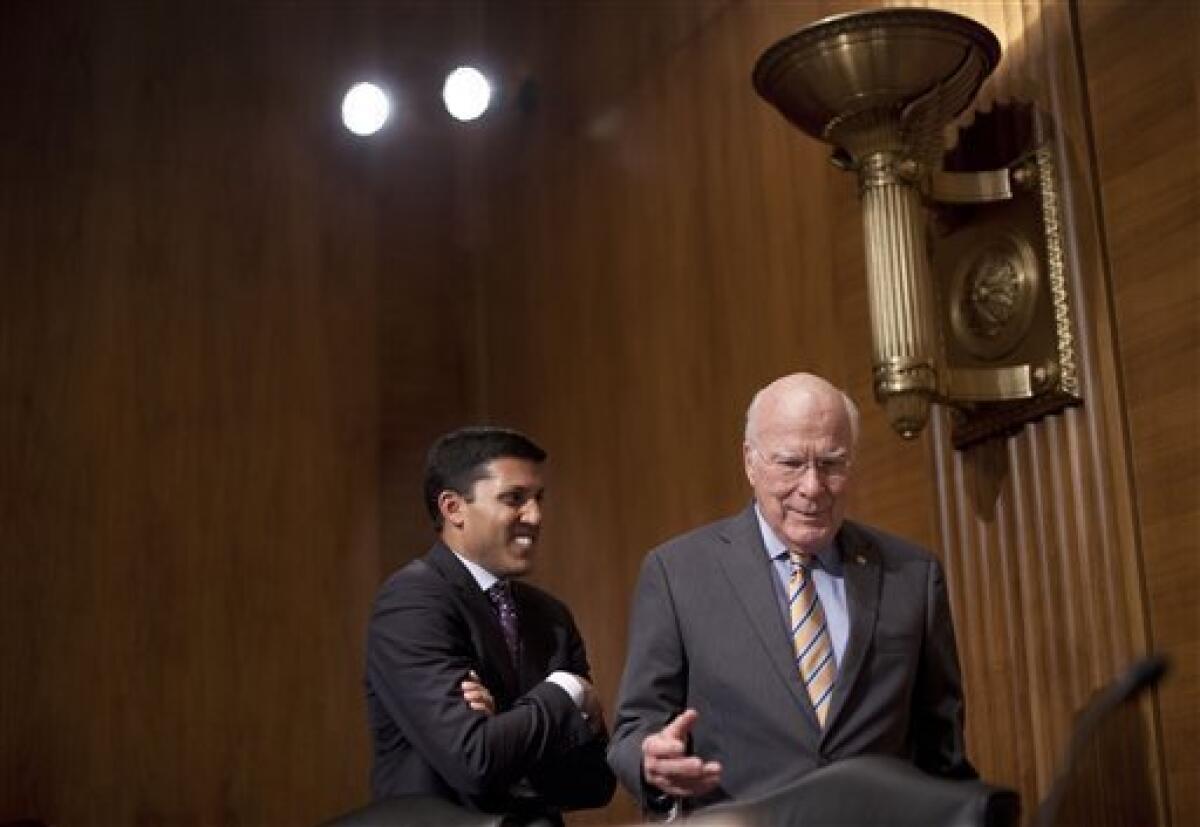USAID chief grilled over ‘Cuban Twitter’ subterfuge

- Share via
WASHINGTON—Lawmakers interrogated the head of the U.S. Agency for International Development on Tuesday over the organization’s funding of a Twitter-like program in Cuba reportedly designed to stir political unrest in the island nation.
Sen. Patrick J. Leahy (D-Vt.), chairman of the Senate appropriations subcommittee on state, foreign operations and related programs, told USAID Administrator Rajiv Shah that the secretive government-funded program was a “cockamamie idea” that “from the get-go had no possibility of working.”
Shah denied elements of a report by the Associated Press, which last week revealed the U.S. role in a social media messaging service for Cubans. It said that the site was also used to gather data on more than 40,000 subscribers to encourage antigovernment protests in Cuba.
Shah said the program was not intended to stir political opposition to the Communist government, but merely to “support access to information and to allow people to communicate with each other.”
He denied the AP’s assertion that USAID had used a system of shell companies to obscure the origins of the funding for ZunZuneo, the Cuban Twitter. But Shah said he did not know how ZunZuneo had explained to Cubans where the money came from.
The operation was part of a USAID program costing $15 million to $20 million a year to promote democracy in Cuba, Leahy said.
Shah could not identify those who developed the program, which started before his tenure in 2009 and ran until 2012.
Sen. Mike Johanns (R-Neb.) expressed dismay that USAID was behind the program.
“When I think about USAID, I think about words like humanitarian, caring, road-builders,” Johanns said, not “going into a country and trying to get Internet access for people who are opposing the regime.”
Leahy also chided Shah for failing to consider the potential danger of the program for USAID employees and for not doing enough to negotiate the release of Alan Gross, a U.S. contractor who was arrested in Cuba in December 2009 while working for the agency. Gross, 64, started a hunger strike last week.
“His health and his age are basically a death sentence,” Leahy said.
Follow L.A. Times National News on Facebook
ALSO:
Ft. Hood shooter saw no combat, had no signs of terror ties
West Coast lawmakers seek millions for quake warning system
Economics pushed Mississippi to teach sex education in schools
More to Read
Sign up for Essential California
The most important California stories and recommendations in your inbox every morning.
You may occasionally receive promotional content from the Los Angeles Times.













